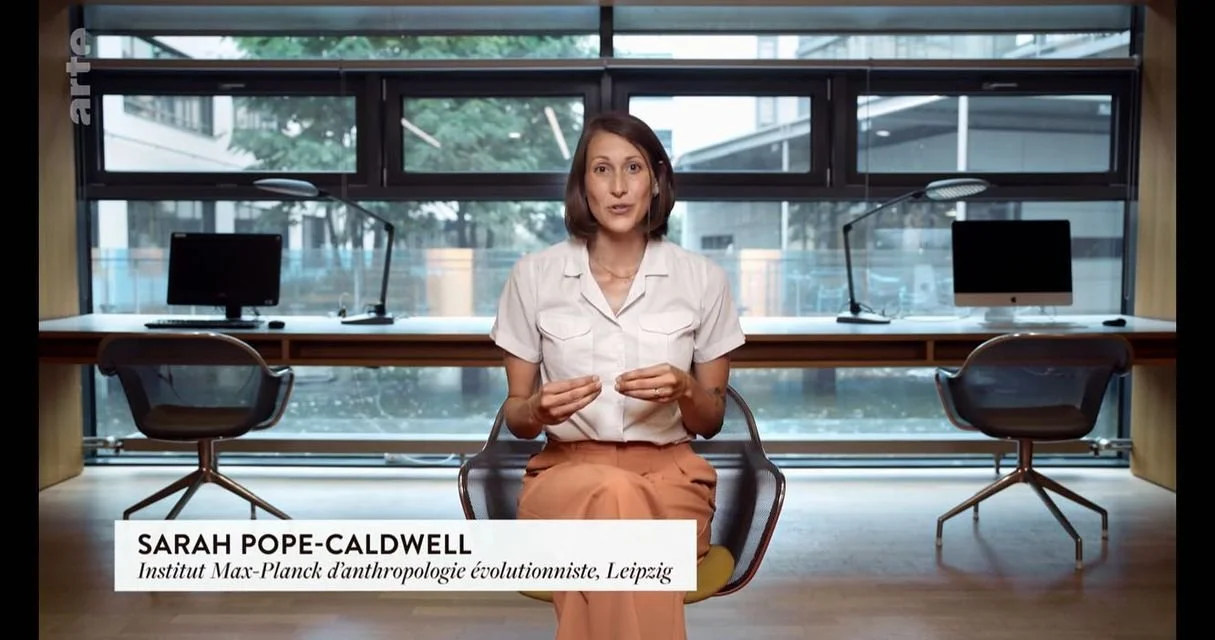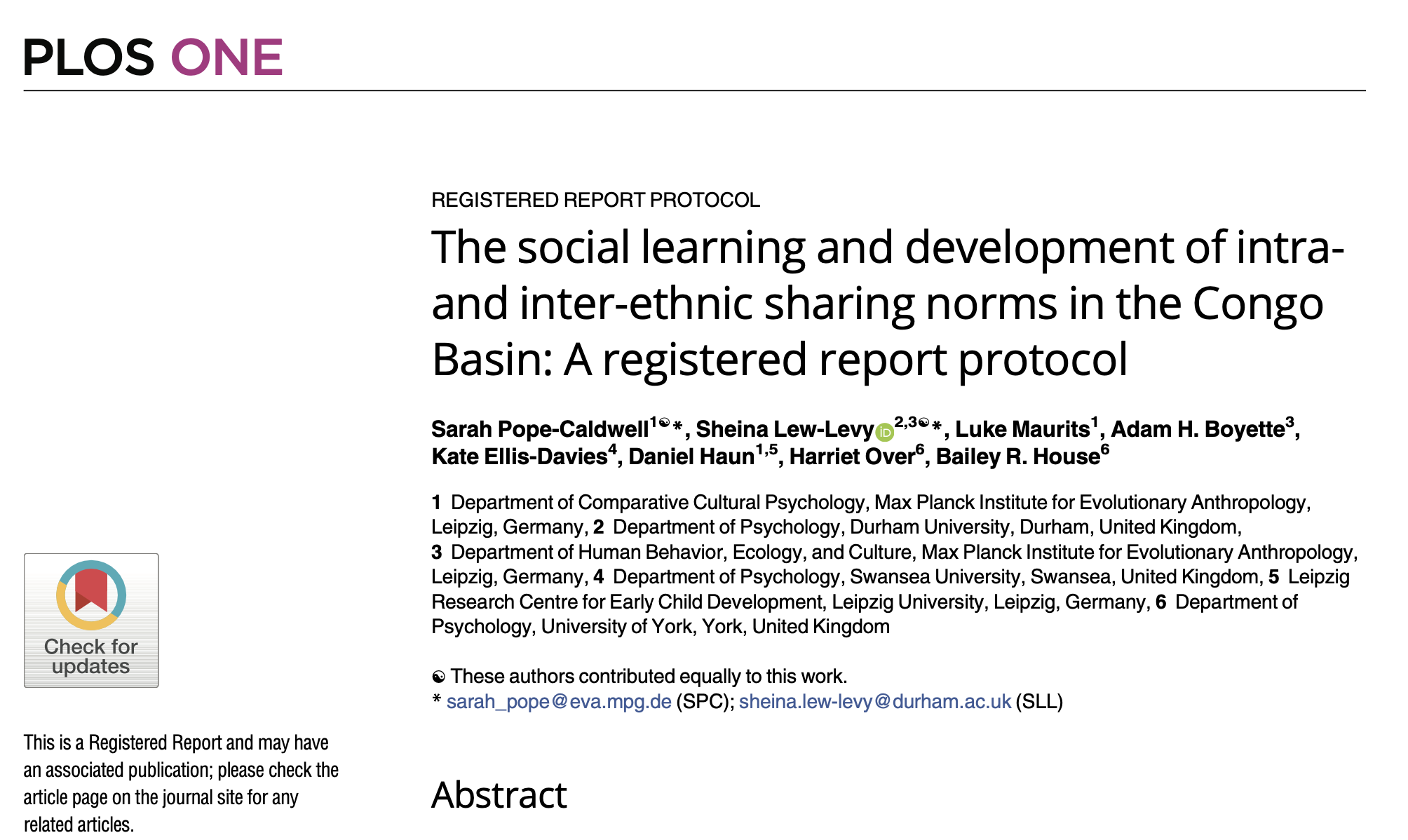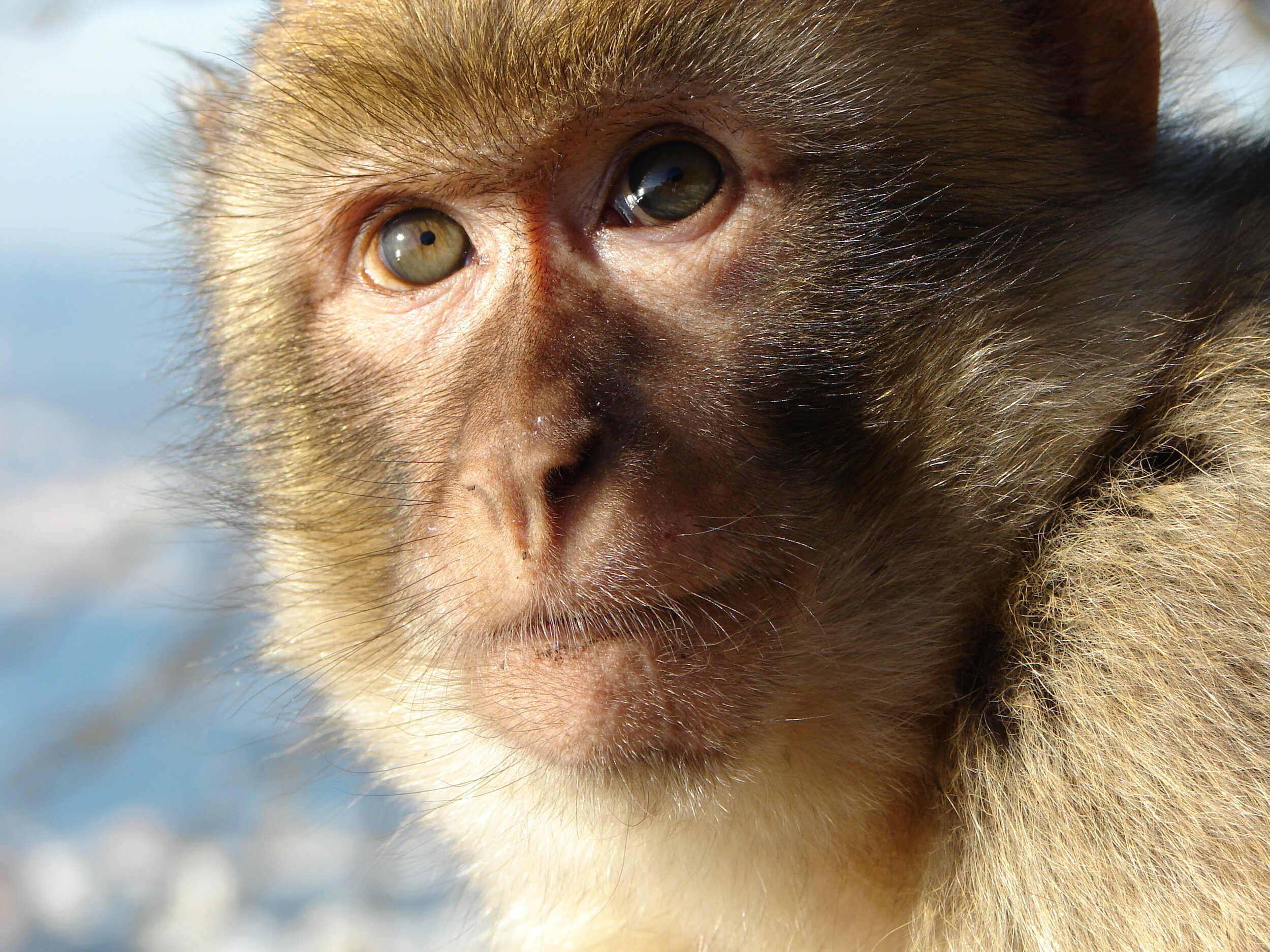Really fun opportunity to work on the “Can we live without power?” episode of ARTE’s 42 - The answer to almost everything. Check it out here: https://www.arte.tv/.../109.../koennen-wir-ohne-macht-leben/ Minute 6:00 onwards!
New Registered Report on the Development of Children's Intra- and Inter-Group Sharing Norms!
Check out our new registered report recently published in PLOS ONE. Here we aim to understand how Congolese children’s sharing norms develop throughout childhood and how this differs depending on whether sharing occurs with member of their another or their own cultural group.
https://journals.plos.org/plosone/article?id=10.1371/journal.pone.0276845
New study on children's tool innovation : Although children from two small-scale societies rarely succeeded on the hook task, we found ample innovation of toys and tools in everyday activities / play.
In our most recent study, we tested how Congolese children’s ability to to innovate on the ‘hook task’ was influenced by their familiarity with pipe cleaners. We found evidence of innovation in children’s everyday play and activities.
Read moreCLOSED: Also from CCP department: Johannna Eckert advertising for two PhD positions in early development of physical and social cognition in non-human great apes
The Department of Comparative Cultural Psychology at the Max Planck Institute in Leipzig is seeking qualified applicants for a fully funded three-year doctoral project on early socio-cognitive development in captive non-human great apes.
Background
The fields of developmental and comparative psychology share the overall aim to understand the origins of the human mind. To date there has been very little research studying the intersection between the two fields: cognitive development from a comparative perspective. Thus, while we have gained extensive knowledge about the development of cognitive abilities in humans, and about the most prominent commonalities and differences between humans and their closest living relatives, we are lacking knowledge about when and how these differences arise.
Position 1: Social Cognition:
The aim of this project is to investigate the early development of social cognition in non-human primates, with a special focus on social attention, social preferences and precursors of theory of mind. We are planning to apply cutting edge technology, such as eye tracking, pupillometry, and thermal imaging to non-invasively assess cognitive abilities of infant apes. By studying and comparing developmental trajectories of social cognition, we will not only get insights into when differences between species emerge, but also gain a deeper understanding of the cognitive architecture of social abilities in humans and other apes.
Position 1 Project Details
The project is a collaborative undertaking of the Department of Comparative Cultural Psychology at the Max Planck Institute for Evolutionary Anthropology and the Minerva Fast Track Group “Milestones of Early Cognitive Development” at the Max Planck Institute for Human Cognitive and Brain Sciences. The selected candidate will design, implement, and analyze experimental studies with infant chimpanzees, bonobos, orangutans, and gorillas (and potentially human infants) using eye tracking and non-invasive physiological measures. Data collection will take place mainly at the Leipzig Zoo, but might be extended to other European Zoos and/or African sanctuaries.
Position 2: Physical Cognition:
The aim of this project is to investigate the early development of physical cognition in non-human primates, with a special focus on object representation, numerical cognition, and causal inference. We are planning to apply cutting edge technology, such as eye tracking, pupillometry, and thermal imaging to non-invasively assess cognitive abilities of infant apes. By studying and comparing developmental trajectories of physical cognition, we will not only get insights into when differences between species emerge, but also gain a deeper understanding of the cognitive architecture of these abilities in humans and other apes.
Position 2 Project Details
The selected candidate will design, implement, and analyze experimental studies with infant chimpanzees, bonobos, orangutans, and gorillas (and perhaps human infants) using eye tracking and non-invasive physiological measures. Data collection will take place mainly at the Leipzig Zoo, but might be extended to other European Zoos and/or African sanctuaries.
Requirements
We seek highly motivated candidates with a MSc degree in Psychology, Biology, Anthropology or a related subject. Applicants must have experience in designing and conducting scientific experiments, expertise in conducting statistical analyses, and excellent communication skills (in spoken and written English). Furthermore programming skills (R, Matlab, Python,… ), and experience in working with animals, in particular non-human primates, is desirable.
Applications
Please address questions and completed applications electronically to Dr. Johanna Eckert (Johanna_Eckert@eva.mpg.de). Applications should include:
1. Cover letter describing how you meet the requirements, including details of past research projects and relevant experience (not more than 2 pages)
2. Curriculum vitae, including the names of three professional references
3. Copies of relevant degree certificates
All electronic applications received by April 1st, 2020 will be considered. Start date is flexible but should be in the first half of 2020.
Candidates of all nationalities are invited to apply. Applications from women are especially welcome. The Max Planck Society is committed to equal opportunities and to employing individuals with disabilities and explicitly encourages them to apply.
Information on the institute is available at http://www.eva.mpg.de/.
We look forward to receiving your application.
CLOSED: Job Posting - Two PhD Fellowships in comparative and cross-cultural psychology at MPI
The Department of Comparative Cultural Psychology in the Max Planck Institute for Evolutionary Anthropology in Leipzig is accepting applications for two fully-funded PhD Fellowships, to begin late Spring or early Summer 2020.
Position 1, cross-cultural variation in cognitive flexibility. This project will involve periodic fieldwork in the Republic of the Congo or other field sites.
Position 2, cross-species differences in cognitive flexibility in apes. This project will involve extensive interaction with the gorillas, orangutans, bonobos, and chimpanzees at the Leipzig zoo.
Read more
Monkeys outperform humans when it comes to cognitive flexibility
We’ve received a ton of press coverage of our recent Scientific Reports study looking at cognitive flexibility in capuchins, rhesus macaques and humans!
Watzek, J., Pope, S. M., Brosnan, S. F. (2019) Capuchin and rhesus monkeys but not humans show cognitive flexibility in an optional-switch task. Scientific Reports, 9(1) 13195.
Read moreOur Brilliant Brains
Very excited to be hosting a National Geographic Education Students Matinee! Click here for more info!
November 8, 2019, 10 AM - 11:30 AM
National Geographic Headquarters in Washington, D.C.
Why The Semi-Nomadic Himba Are So Good At Thinking Outside The Box
"WEIRD humans live in WEIRD environments at least evolutionarily speaking," says Pope. The fundamental workings of our minds were shaped thousands of years ago in environments vastly different than our present day surroundings. "Only looking at Westerners limits the scope of our understanding of human cognition," says Pope.
National Public Radio
Goat’s and Soda
April 7th, 2019 by JONATHAN LAMBERT







